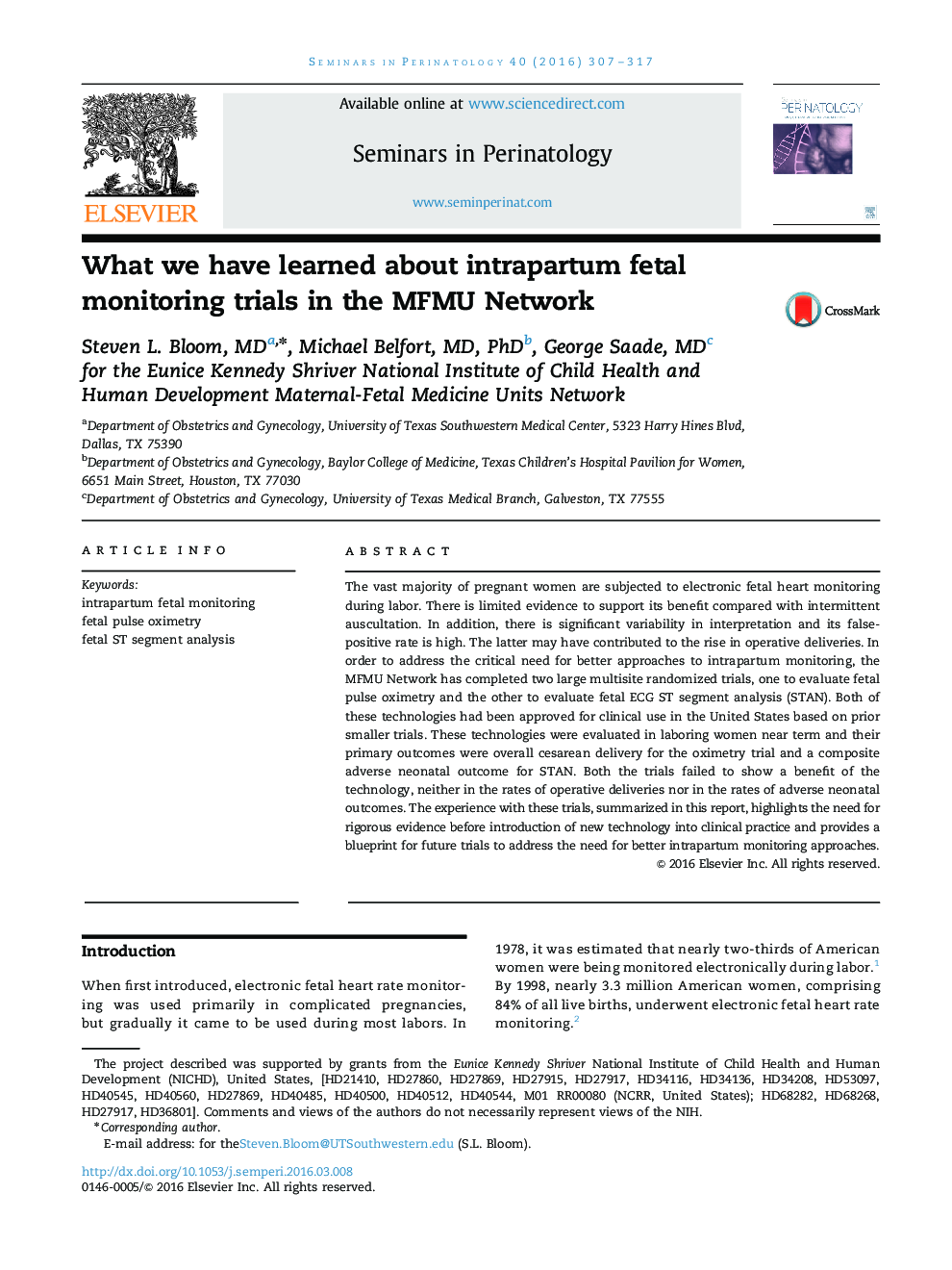| Article ID | Journal | Published Year | Pages | File Type |
|---|---|---|---|---|
| 3836058 | Seminars in Perinatology | 2016 | 11 Pages |
The vast majority of pregnant women are subjected to electronic fetal heart monitoring during labor. There is limited evidence to support its benefit compared with intermittent auscultation. In addition, there is significant variability in interpretation and its false-positive rate is high. The latter may have contributed to the rise in operative deliveries. In order to address the critical need for better approaches to intrapartum monitoring, the MFMU Network has completed two large multisite randomized trials, one to evaluate fetal pulse oximetry and the other to evaluate fetal ECG ST segment analysis (STAN). Both of these technologies had been approved for clinical use in the United States based on prior smaller trials. These technologies were evaluated in laboring women near term and their primary outcomes were overall cesarean delivery for the oximetry trial and a composite adverse neonatal outcome for STAN. Both the trials failed to show a benefit of the technology, neither in the rates of operative deliveries nor in the rates of adverse neonatal outcomes. The experience with these trials, summarized in this report, highlights the need for rigorous evidence before introduction of new technology into clinical practice and provides a blueprint for future trials to address the need for better intrapartum monitoring approaches.
